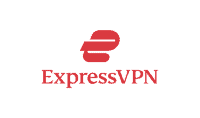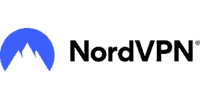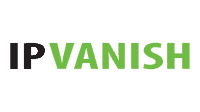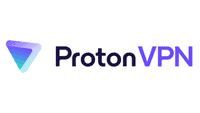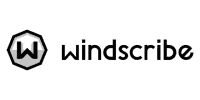Ever wondered why school Wi-Fi can be so tricky to use for anything other than assignments? With strict firewalls and blocked sites, it’s no surprise that students look for ways to navigate these restrictions. Using a VPN can be your ticket to accessing blocked resources and keeping your online activity private.
In our article, we’ll explore the best VPN for school. We’ll explore services that are reliable and cost-effective, helping you make the most of your online time at school without the usual headaches.
Let’s take a look at how you can surf the web freely and securely in your academic environment.
Top 11 Best VPNs for Schools in 2024
When it comes to choosing a VPN for school, finding the right fit is essential for bypassing restrictions and ensuring privacy. Here’s our list of the top options:
- ExpressVPN: Best for Streaming and Privacy
- NordVPN: Best for Advanced Security Features
- Surfshark: Best for Budget-Friendly Multi-Device Support
- Private Internet Access: Best for Customization and Torrenting
- CyberGhost: Best for User-Friendly Streaming Access
- IPVanish: Best for Secure File Sharing
- Proton VPN: Best for Free Privacy Features
- Windscribe: Best for Generous Free Plan
- Hide.me: Best for Speed and Privacy on Free Plans
- TunnelBear: Best for Simple and Beginner-Friendly Use
- PureVPN: Best for Server Variety
ExpressVPN
ExpressVPN is a widely recognized VPN service, offering fast speeds and strong security features. It operates with a broad server network and supports various devices. In this section, we’ll go over the benefits and limitations of using ExpressVPN, share our hands-on experience, and discuss its pricing options.
Pros & Cons
- High-speed connections with Lightway protocol
- Extensive server network across 100+ countries
- Strong privacy and security measures
- Free password manager included with subscription
- Higher cost compared to some competitors
- Lacks certain security tools like malware-blocking
- No option for port forwarding
Our Experience
In our experience with ExpressVPN, we found its performance to be impressive. The VPN provides a smooth and fast connection, thanks to its Lightway protocol.
This makes it excellent for streaming and downloading without interruptions. The user interface is simple and intuitive, which is great for both beginners and advanced users.
Our tests showed that ExpressVPN is effective in bypassing geo-restrictions on popular streaming platforms, like Netflix and Hulu. The extensive server network helped in finding fast connections across multiple locations.
While using ExpressVPN, we felt assured by its security features. Our browsing activity remained private, and the no-logs policy added to our confidence in its privacy claims.
However, we noticed that it doesn’t offer as many built-in security tools, like malware blockers, which some other services provide.
Pricing Plan
ExpressVPN is priced on the higher end compared to other VPN services. The monthly plan is $12.95, which can be somewhat expensive if you’re looking for short-term use.
Opting for the one-year plan reduces the monthly cost to $6.67, providing significant savings for long-term users. There are also ongoing promotions that can include a few additional free months when signing up for the yearly plan.
While these prices reflect its premium status, the strong security measures and network performance may justify the investment for many users seeking a reliable and efficient VPN service.
NordVPN
NordVPN is widely recognized for its impressive speed and secure features. It’s a top choice for users looking to maintain privacy and bypass restrictions, especially in school settings. Let’s explore its benefits, our personal experience, and the pricing details.
Pros & Cons
- Fast connection speeds
- Strong privacy and security features
- User-friendly interface
- Wide range of server locations
- Affordable pricing options
- Occasional connection drops
- Some servers may be slower during peak times
- Limited simultaneous connections compared to some competitors
Our Experience
Using NordVPN has been a mostly positive experience for us. The interface is intuitive and easy to navigate, which makes connecting to a server simple.
Performance-wise, the speed is generally impressive, maintaining fast connections that are essential for streaming and browsing without interruptions. We did notice occasional connection drops, but they were infrequent.
Security features add a reassuring layer of protection. Strong encryption and various protocols enhance privacy, which is crucial when accessing school networks.
Its ability to bypass geographical restrictions is a notable advantage, allowing access to otherwise blocked content. Despite minor hiccups with some servers being slower, our experience with NordVPN has been largely satisfying.
Pricing Plan
NordVPN offers several pricing plans tailored for different needs. Users can choose between monthly, annual, or biennial subscriptions. The current rates are:
- Monthly Plan: $12.99/month
- 1-Year Plan: $4.99/month, billed annually at $59.88
- 2-Year Plan: $3.29/month, billed every two years at $78.96
These plans provide flexibility and value, especially the longer-term options that offer significant savings. With a 30-day money-back guarantee, these plans allow users to try the service risk-free.
Whether it’s short-term use or a long-term commitment, NordVPN’s pricing accommodates a range of budgets and preferences.
Surfshark
Surfshark is a budget-friendly VPN, perfect for school environments. It allows for unlimited simultaneous connections and is popular for its value and performance. Let’s break down its features, experience with the platform, and pricing.
Pros & Cons
- Unlimited simultaneous connections
- Affordable yearly plan
- Strong security features
- Easy to use on various devices
- Occasionally, slower connection speeds
- Limited free trial
- Data centers focused more on popular regions
Our Experience
Using Surfshark in a school setting was mostly positive. We appreciated its user-friendly interface, allowing quick setup and smooth navigation on different devices.
The unlimited connections meant we could use multiple devices without any hassle, a huge advantage for students moving between laptops, tablets, and phones.
We noticed some slowdown during peak times, likely due to server load. While it didn’t disrupt regular browsing or streaming, some high-bandwidth activities were affected.
Its cleanWeb feature helped block ads, making browsing quicker and less distracting. Overall, for everyday school use like research and streaming lectures, Surfshark performed well.
Pricing Plan
Surfshark offers several pricing options, making it accessible for students. The most cost-effective plan is the two-year deal, priced at about $59.76, averaging just under $2.50 per month. There’s also a monthly plan at about $12.95.
The one-year plan comes in at around $47.88, making it slightly less economical compared to the two-year option.
For those unsure about committing long-term, Surfshark has a 30-day money-back guarantee. Although there’s no extended free trial, the competitive pricing makes it a strong option for students looking to protect their privacy without breaking the bank.
Private Internet Access
Private Internet Access (PIA) is a popular VPN choice for school environments thanks to its strong security features and ability to handle multiple devices. We explore its benefits, personal use experience, and cost options, giving an in-depth look at this VPN solution.
Pros & Cons
- Strong encryption
- Supports multiple devices
- User-friendly interface
- No-logs policy
- Slower speeds on some servers
- Limited server presence in certain areas
Our Experience
Our hands-on experience with Private Internet Access shows it to be a reliable VPN for students needing secure Internet access. The setup was straightforward, even for those not technically inclined.
We appreciated the strong encryption, which provides protection when accessing potentially vulnerable school networks.
On the downside, we noticed slower connection speeds when using certain servers, which could be an issue during peak usage times.
Despite this, PIA consistently maintained a secure and stable connection, which is crucial for academic tasks. With its no-logs policy, we felt confident about our privacy being respected, an important factor for students and faculty alike.
Pricing Plan
Private Internet Access offers several pricing plans that cater to various budgets. The monthly plan costs $11.99 per month. A six-month plan is available at $7.50 per month, billed as $45 every six months.
The best value comes with a two-year option, which costs $2.19 per month and is billed $53 every two years, often including a few extra months for free.
These plans provide flexibility for students who need short-term or long-term VPN access, making PIA a cost-effective solution.
CyberGhost
CyberGhost is a popular VPN choice for students due to its ease of use and adaptability on school networks. It offers a range of features that make it appealing for both personal and academic use.
Pros & Cons
- Offers a free trial for testing
- Wide range of server locations
- Affordable long-term plans
- Free trial is limited to 24 hours
- Occasionally, slower speeds on busy servers
- May not consistently bypass all school firewalls
Our Experience
Our experience with CyberGhost has been overall positive. Setting it up was straightforward, and we appreciated the user-friendly interface. Using it on school Wi-Fi was generally smooth, with few interruptions.
The connection did slow down during peak times, which was a bit frustrating when trying to access cloud resources quickly.
Security features like automatic kill switch and DNS/IP protection made us feel secure about data privacy. However, sometimes the servers took longer to connect, especially when accessing international content.
Despite these issues, CyberGhost remained reliable for most daily tasks, proving useful for browsing and online research without compromising speed too much.
Pricing Plan
CyberGhost offers several pricing options. The monthly plan is priced at $12.99, which is a bit on the higher side for casual users.
For better value, the two-year plan is available at $2.11 per month with an additional three months free. Students looking for budget-friendly options might find the longer-term plans more suitable.
Their pricing remains competitive, especially with features like streaming access and privacy tools included in all plans.
Although the upfront cost for a longer plan can be high, the overall savings are significant, making it an attractive choice for those who require a stable VPN for school.
IPVanish
IPVanish stands out as a strong contender when searching for a VPN suitable for educational settings. It offers advanced encryption, high-speed connections, and extra features like malware protection.
Pros & Cons
- High-speed connectivity, averaging 235 Mbps.
- Strong 256-bit AES encryption.
- User-friendly interface for beginners.
- Budget-friendly pricing.
- Additional features like Secure Browser and Cloud Storage.
- Based in the U.S., subject to privacy concerns.
- Limited support for anonymous payments.
Our Experience
Using IPVanish, we found it efficient and reliable, especially for school environments where accessing resources without restriction is crucial. The VPN’s ability to bypass school network blocks smoothly allowed us to work with online materials without interruptions.
The interface is intuitive, making it accessible for those new to VPNs. We appreciated the strong encryption provided, ensuring our data remained secure.
The speeds were consistently high, which is essential when downloading or streaming educational content. However, its location in the U.S. might be a privacy concern for some users.
While it offers excellent features like a secure browser and cloud storage, the lack of support for cryptocurrencies could be a drawback for those prioritizing anonymity.
Pricing Plan
IPVanish offers competitively priced plans that make it a viable option for students. Currently, it provides a monthly plan starting around $11.99, with an annual plan costing approximately $47.89, which can significantly lower the monthly cost.
These plans include access to all features, ensuring users get full functionality without hidden fees. Their introductory pricing is particularly attractive for those entering the VPN space for the first time, offering good value for the money.
The ability to connect multiple devices with one account is another significant advantage of their offerings.
Proton VPN
Proton VPN offers strong security features and practical pricing plans. It is particularly attractive to students seeking a reliable VPN that also respects privacy.
Pros & Cons
- High-level encryption
- No data caps on the free version
- Switzerland-based, strong privacy laws
- Lower speed retention
- A limited number of servers
Our Experience
Using Proton VPN, we noticed that it excels in maintaining privacy. It uses strong encryption and adheres to a strict no-logs policy, which means your data isn’t stored. However, speed variation can be an issue.
Although averaging 510Mbps, it sometimes spikes to 750Mbps. This was noticeable during our testing when some websites took longer to load.
The platform’s ability to automatically search for unblocked ports is smart and convenient. This feature ensures smooth navigation even when blocks are encountered, which is useful for school networks.
On the downside, the limited number of servers can restrict access to content in certain regions, but for most common needs, it does a good job.
Pricing Plan
Proton VPN offers competitive pricing. Its free plan is unique with no data caps, making it appealing for students. Paid plans start at $2.99 per month, which includes features like faster speeds and access to more servers.
There is also a 30-day money-back guarantee, which allows users to try the premium service with little risk. These plans provide flexibility based on specific needs and usage patterns.
Windscribe
Windscribe is a popular choice for students looking to secure their online activities. It offers a balance of features and pricing. It stands out with a combination of paid and free options that cater to varying needs, making it a suitable option for different users.
Pros & Cons
- Offers a free plan with 10GB of data
- Strong encryption for secure browsing
- User-friendly interface
- Available on multiple devices and platforms
- Free plan data limit may not be enough for heavy users
- Speeds can vary depending on the server location
Our Experience
Using Windscribe, we found the setup process to be straightforward and intuitive. The interface is clean, making it easy to navigate even for those not tech-savvy.
We appreciated the range of features available even in the free version, like ad-blocking and firewall options.
The connection speeds were generally good, although we noticed some variability depending on the time of day and server location. During peak times, there can be a slowdown, which may affect streaming or downloading large files.
Nevertheless, the connection remained stable overall, and security features like encryption and IP masking were reliable.
Pricing Plan
Windscribe offers flexible pricing plans. The monthly plan is priced at $9 per month. For those looking for a longer commitment, an annual plan is available for $69, providing a more cost-effective option.
They also offer a limited-use free version with 10GB of data per month, which is ideal for light users. The pricing structure is straightforward, allowing users to choose based on their budget and usage requirements.
Hide.me
Hide.me offers a reliable option for students who need a VPN at school. Known for its user-friendly interface, it performs well in terms of speed and privacy, even on its free plan.
Pros & Cons
- Free plan available
- User-friendly interface
- Strong privacy features
- Fast speeds on nearby servers
- Limited features on the free plan
- High cost for premium plans
Our Experience
During our tests with Hide.me, we found it easy to set up and use. The interface is intuitive, which makes it an excellent choice for VPN beginners. Our streaming tests showed that it unblocks major platforms like Netflix efficiently.
Speed tests delivered consistently fast results, especially on servers close to our location. On the downside, some more advanced features are locked behind the premium plan, which might not suit everyone’s budget.
In terms of security, Hide.me offers advanced encryption and doesn’t log user activity, aligning with privacy expectations.
Pricing Plan
Hide.me provides a free plan with limited features, but it’s a suitable choice for lightweight use. Their premium plans have more features and start at around $5.41 per month if subscribed annually.
Users can also opt for shorter-term plans, which come at a higher monthly rate, reaching up to approximately $12.95 per month for a single month.
TunnelBear
TunnelBear is a friendly and easy-to-use VPN, great for beginners. It’s known for its fun design and dedication to privacy. With unlimited connections allowed, it’s appealing for families or those with many devices.
Pros & Cons
- Easy and user-friendly interface
- Attractive free version with additional data available
- Unlimited simultaneous connections
- Strong focus on transparency and privacy
- Limited free data (500MB monthly free tier)
- Lack of advanced features like multi-hop connections
- Obfuscation features not available with all protocols
Our Experience
We’ve found TunnelBear to be a simple and straightforward VPN. The interface is charming, featuring their signature bear theme, which makes using the app enjoyable and unintimidating.
We quickly connected to servers and noticed good connection speeds for most everyday activities like browsing and streaming.
One downside is the limited data allowance on the free plan, which ran out fast when we browsed heavily or streamed videos. However, their unlimited connections feature meant we could protect multiple gadgets without hassle.
The ability to use servers across its network was beneficial for accessing content. Although TunnelBear doesn’t have advanced features like some other VPNs, its reliable privacy policies and ease of use still make it attractive.
Pricing Plan
TunnelBear offers several pricing options. The free plan provides 500MB of data each month, which isn’t much for frequent use, but more data can be gained by promoting the service on social media.
For more extensive use, the Unlimited plan costs $9.99 per month. The annual plan is $59.88, which saves users compared to paying monthly.
The three-year plan offers even better value at $120 total. These pricing options make TunnelBear reasonably priced compared to other VPN services. Payments can be made using major credit cards, ensuring convenience for most users.
PureVPN
PureVPN is a popular choice for students looking to access blocked sites on school networks. With a wide network of servers and strong security features, it’s designed to keep online activities private and secure. We’ll dive into its strengths and weaknesses, our personal experience with the service, and its pricing options.
Pros & Cons
- Over 6,000 servers in 65+ countries
- Supports up to 10 simultaneous connections
- Strong security features with 256-bit encryption
- User-friendly apps for multiple devices
- 24/7 customer support
- Speeds can vary depending on the server location
- Some users report occasional connectivity issues
Our Experience
PureVPN offers a solid user experience, especially for students who need reliable access to restricted content. We found the setup process straightforward with clear instructions. The interface is intuitive, making it easy to switch between servers worldwide.
During our tests, PureVPN’s connection speeds were generally good but did fluctuate on certain servers. This can affect streaming or gaming.
The security features, such as 256-bit encryption and a no-logs policy, provide protection for maintaining online privacy. While connectivity issues were rare, there were a couple of times where reconnecting was necessary.
Customer support was responsive and helpful, available through 24/7 live chat. Overall, PureVPN delivered on its promise of providing secure and private internet access despite minor hiccups in connection stability.
Pricing Plan
PureVPN offers several pricing plans tailored to different needs. The most competitive option is the 3-year plan at a significant discount, often featuring additional free months. There’s also a 2-year plan available, which includes discounted rates and bonus months.
Monthly and yearly options are more flexible, though costlier per month. Discounts for students can reduce these prices further, making it an attractive option for those on a budget.
Final Analysis
In our search to find the best VPN for school, we’ve looked at various factors like speed, security, and usability. After thorough research and comparison, one VPN service consistently stands out.
Winner: NordVPN
NordVPN shines with its blazing-fast speeds. In tests, it retained an average of 930Mbps on a 1Gbps connection. This speed allows streaming and browsing without noticeable slowdowns, which is crucial for students, according to Techopedia.
The security features are advanced. With NordVPN, users get powerful encryption and a strict no-logs policy. Privacy is a top concern for students accessing school networks, and this service addresses it effectively.
Additionally, NordVPN’s ability to bypass network restrictions makes it stand out. It’s great at unblocking content on restricted Wi-Fi networks as noted by Gizmodo.
Affordability is another strong point. Not only does it offer top-notch features, but it also provides great value for money. This makes it a solid option for students who need reliable protection without breaking the bank.
To summarize, based on performance and features that matter most to students, NordVPN has proven to be the best choice for use on school networks. Its speed, security, and cost-effectiveness ensure that it meets the needs of students seeking a dependable and efficient VPN service.
How We Verify and Analyze Products
We start by scanning the market to identify popular VPNs suitable for school use. Our team looks at customer reviews, expert evaluations, and product specifications to compile a comprehensive list.
Next, we narrowed down our selection to VPNs that offer features such as speed, privacy, and compatibility with school networks. This includes testing options like:
ExpressVPN
NordVPN
Surfshark
Private Internet Access
CyberGhost
IPVanish
Proton VPN
Windscribe
Hide.me
TunnelBear
PureVPN
We put each product head-to-head using a clear set of criteria. Speed tests help determine how each VPN performs under different conditions. We use several tools to measure both average and peak speeds.
We evaluate security features to ensure protection for users. This involves checking encryption methods and privacy policies.
Our unblocking tests assess how well VPNs bypass common school network restrictions.
Finally, we look into cost-effectiveness and ease of use. This ensures that users can manage the VPN without needing extensive technical knowledge.
Collating all this data, we compare and rank each VPN to ensure our recommendations meet the needs of students.
What is a VPN for School?
A VPN for school is a tool that helps us access the internet safely and privately while on school networks. School networks often have restrictions to block certain websites or apps. With a VPN, we can bypass these restrictions, letting us visit sites that might otherwise be off-limits.
When we use a VPN, our internet connection is encrypted. This means our online activity is hidden from others, including potential hackers or even network administrators. This ensures that our personal data remains secure.
Many VPN services offer user-friendly apps. These apps make it easy for us to connect to different servers around the world. By connecting to a server in another location, we can easily change our IP address. This is especially useful for accessing content that is only available in certain regions.
There are several VPNs that are popular for school use. For example, ExpressVPN is known for bypassing internet filters effectively. Another great option is NordVPN, which provides good value and strong security features.
Using a VPN in school can also help us maintain our privacy when browsing sensitive or personal information. It’s like having a personal, secure tunnel to the internet, keeping our activity hidden from prying eyes.
The main benefit of using a VPN at school is the combination of privacy and freedom. We can explore the online world without worrying about who might be watching or what is being blocked.
Benefits of Using VPN for School
When we use a VPN at school, we experience several key benefits that can make our online experience much better. A VPN helps us stay secure by encrypting our internet connection. This makes it hard for anyone to see what we’re doing online, keeping our information private.
With a VPN, we can get around network restrictions. Schools often block certain sites, especially social media or streaming platforms. By using a VPN, we can access these sites, expanding our online resources for study or entertainment. It’s important to choose a reliable service to ensure good performance.
Online safety is another major benefit. A VPN protects us from cyber threats by masking our IP address. This keeps our identity safe when we’re browsing the internet, reducing the risks of hacking or data theft.
Let’s not forget about performance. Some VPNs, like NordVPN, offer fast speeds, ensuring that we don’t face any slowdowns while surfing the net. This is particularly useful for streaming content or attending online classes.
Another advantage is accessing geo-restricted content. A VPN lets us appear as if we’re browsing from another country. This can be useful if we want to access educational content or services not available in our region.
Overall, having a VPN provides a more secure, unrestricted, and enriching online experience. It’s a valuable tool for school and beyond.
Factors to Consider When Choosing a VPN for School
When we pick a VPN for school, we need to consider compatibility. Not all VPNs work with every device or operating system. We should check if it supports Windows, macOS, Android, or iOS, depending on what we use.
Security is another important factor. We should choose a VPN with strong encryption and a good privacy policy. This helps keep our data safe from hackers and prying eyes. Options like ExpressVPN are known for strong privacy features.
Let’s not forget speed. The last thing we want is slow internet when using a VPN. Fast VPNs provide smooth browsing and streaming. Some VPNs, like NordVPN, offer servers optimized for speed.
Ease of use matters, too. We want a VPN that’s easy to install and navigate. A user-friendly interface can save us time and frustration, especially if we aren’t tech-savvy.
We should also think about the cost. Some VPNs offer free plans, but they might have limitations. A paid plan can give us more features and better security. For instance, Proton VPN offers affordable premium options.
Obfuscation is key if our school has tough VPN-blocking firewalls. VPNs with obfuscated servers, like NordVPN, can help bypass these blocks. Here’s a link to learn more about NordVPN’s obfuscation.
Finally, check for additional features like multi-device support, which lets us connect several devices at once. Having these factors in mind helps us pick the right VPN that meets our needs at school.
Frequently asked questions
What is the best VPN for students to use in school?
NordVPN and ExpressVPN are both strong choices for students. NordVPN offers remarkable speed retention for seamless browsing, making it ideal for school use. ExpressVPN is noted for its ability to bypass internet filters in restrictive school networks.
Can a VPN bypass school Wi-Fi restrictions?
Yes, a VPN can help bypass school Wi-Fi restrictions by encrypting internet traffic and masking online activities. This allows access to blocked content on school networks. Many students use VPNs to browse freely without network restrictions.
Is using a VPN at school legal?
Using a VPN in school is generally legal, but it is crucial to check school policies first. Schools might have specific rules against bypassing their internet restrictions. It’s important for us to use VPNs responsibly and within the bounds of school regulations.
Does using a VPN for schoolwork affect the speed of my internet connection?
Using a VPN can sometimes slow down internet speed due to encryption. However, NordVPN and other top choices often maintain good speed performance. Choosing a VPN with a large server network can help minimize speed issues and provide a smoother experience.
What features should I look for in a VPN for school?
Key features to look for include strong encryption, a no-logs policy, and a wide server network. The option to bypass firewalls is essential, along with user-friendly apps for different devices. Reliable customer support is also important when choosing a VPN.
Are there any free VPNs that work well for school?
Free VPNs are available but may have limited features compared to paid versions. For example, CyberGhost offers a free trial for 24 hours. It’s a way to test if their service works well on a school’s network before committing to a subscription. Keep in mind that free versions might have restrictions like data limits.
